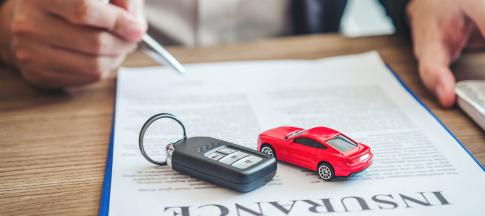
We understand that buying a car can be confusing since there’s so much to think about, so we’ve put together this handy guide to give you all the information you’ll need.
Where to buy a car
The options to buy a car are endless – particularly with so many available online. The two most traditional options are car dealerships and private purchases.
Here’s what to consider when deciding where to buy your car.
- Car dealer – this will normally cost more money than buying elsewhere, but garages sometimes include a short warranty. Always check the terms of the warranty to see which parts are included and if labour costs are included. There tends to be more security when buying a used car from a dealer, but still make sure to check the dealer is reputable and never be rushed into a sale
- Privately – this is normally a cheaper option, however you don't get the security you would from a dealer, such as payment protection if you pay using a credit card. You may want to purchase your own private warranty once you have bought your car. Although it won’t be cheap, it should cover you if things go wrong.
Which car?
There are many things to think about when deciding on the make and model of the car you want to buy, here we list the most important:
- Size – it really does matter when it comes to engine size. Keep the engine size low, for example 1200cc or less, to keep the insurance and tax costs down
- Age – brand new cars are often unaffordable for first time car buyers so if you're buying a second-hand car, make sure you check the mileage. Look for a car with an average mileage of 12,000 per year or less, with a good service history and long MOT
- Fuel type – generally, petrol cars tend to be better for people only using the car for short journeys. Diesel cars are more suited to people who have a high annual mileage, due to the better fuel economy in diesel cars which allows you to save more the more miles you do. However, there is normally a premium for diesel engines.
- Features – check the safety features of the car. Look for a car that has a good Euro NCAP rating, which is where the car has been tested in a crash to check how it withstands impact. Also check that it has ABS (anti-lock braking system), which helps steering under severe braking.
Running Costs
Keep in mind it’s not just the initial purchase price you’ll have to pay for your car.
The running costs of the car such as fuel consumption, servicing and repairs all add up. You’ll need to keep your engine oil, engine coolant and brake fluid all topped up to save potential damage to your vehicle.
For tips on how to check your car’s fluids, read our guide on the DIY jobs you can do at home to help your car pass its MOT and help save you money.
Best first-time cars to insure
The amount you’ll have to pay to insure is calculated on a number of things such as the car model, engine size and your driving experience to name just a few. Premiums are often higher for new drivers with less experience.
When it comes to insurance, black box insurance, or Telematics, is popular option for young and first-time drivers as it can reduce the premium by monitoring how well they drive. Admiral’s Telematics insurance - LittleBox - can help you save on your renewal.
Checking the car
When buying your car, try to take someone with you who has a good knowledge of cars. Alternatively, you can have an inspection done by companies such as the AA or RAC. It will cost you, but it could save you a lot of money in the long run.
If the person you're buying from is against having an inspection done this could be a warning sign and perhaps you should consider buying elsewhere.
Checks to carry out:
- Make sure the registration document details match the vehicle
- Try and get a car with good service history so you know it has been well maintained and you can check it has the correct mileage and hasn’t been clocked
- Confirm the car has no outstanding finance. If you purchase the car and there is finance outstanding, the finance company can take your car away and leave you out of pocket
- Take the car for a test drive. While you have the car, listen out for any unusual noises, check the tyres for good tread and check there are no leaks.
Now you have your car, make sure you have valid car insurance and get out on the road!
And don't forget to see how Admiral Car Finance could help you out when you're buying your first car.


